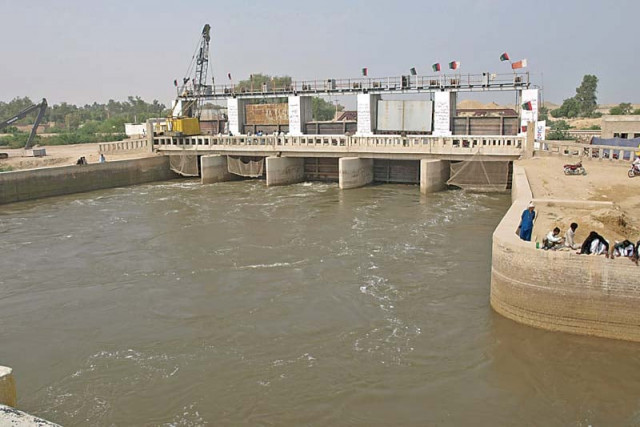Manchar Lake’s RO plants dry up
70 plants, supplying water to 130 villages around the lake, lie dysfunctional amid negligence, corruption

The Manchar Lake - one of Asia's biggest lakes, stretching to around 200 square kilometres - has, for decades, been unable to provide clean drinking water to those dwelling nearby. Polluted by the inflows from the Right Bank Outfall Drain, carrying hazardous wastewater, the lake has left nearby residents dependent on reverse osmosis (RO) plants for their needs.
However, even these RO plants have become dysfunctional over the years. According to area residents, up to 70 RO plants, on which 130 villages rely for their potable water supply, have been lying idle for two or more years.
"The RO plants around the lake have been closed for around two years," claimed Moula Bux Mallah, the chairperson of the Save Manchar Ittehad, alleging that though the Sindh Public Health Engineering Department (PHED) received annual budgetary allocations for the repair and maintenance of these plants, the funds were embezzled.
"First they contaminated our lake and made us reliant on the RO plants. Now even those RO plants are no longer working," he lamented, bemoaning the fact that the impoverished villagers, who had already lost their livelihoods from fishing and farming at the lake, were now compelled to pay for water bought from Sehwan and Bhan Saeedabad.
Ghulam Mustafa Mallah, a local representative of the Pakistan Fisherfolk Forum, said the Supreme Court had ordered the installation of the plants. But, he added, the corruption of the relevant officials had left the RO plants inoperative.
"The plants have been shut down due to the PHED staff's corruption and incapacity," slammed Bakshal Khan Jamali, who lives in the area, as he appealed to the courts and the provincial government to take notice of the villages' plight. He, too, claimed the budget set aside for regular repair and maintenance work was never spent on the plants.
Aashiq Brohi, who also lives near Manchar, claimed the plants were never looked after, even when they were functioning. As a result, he added, the water quality had been compromised.
The affected villages include Zero Point, Bubak Band, Daim Ji Miani, Yousuf Jamali, Nangar Khan Brohi, Shafi Thalho, Rasool Bux Roodnani, Malook Mallah, Memon Mohalla, Ibrahim Roodnani, Kor Miani and Sobho Khan Loond, among dozens of others. The plants installed for the villages at the Reduced Distance (RD) 15, 40, 61, 62, 63, 67, 71, 79, 91 and 94 are also non-functional.
The plants, though installed by different federal and provincial departments, lie under the purview of the PHED, as far as maintenance is concerned.
While the department's executive engineer, Sajjan Mal Deewan, acknowledged the problem existed, he stated the PHED had floated a tender for the plants' repair. "The work will probably begin next week," he told The Express Tribune. However, he did not disclose how long it would take to restore the water supply, saying only that the work would be completed "soon."
Another issue that stands in the way of the RO plants operating properly is that of the lack of payment of salaries to the staff deputed there, with many of them adding that they did not receive funds or material to maintain the plants, let alone any salary.
However, Deewan claimed the problem of their salaries would also be resolved in a week's time.
Published in The Express Tribune, August 24th, 2020.



















COMMENTS
Comments are moderated and generally will be posted if they are on-topic and not abusive.
For more information, please see our Comments FAQ